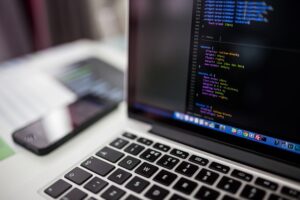
Private Internet Access (PIA) is a robust VPN tool that provides comprehensive security and privacy solutions tailored for academic researchers and journalists worldwide. It offers advanced encryption, including Secure Socket Layer (SSL) technology, to secure sensitive data against breaches and unauthorized access. PIA's no-logs policy ensures user activity remains private, which is essential for researchers dealing with confidential information. The global server network of PIA allows users to bypass regional restrictions and access a wide array of datasets without compromise. For journalists, PIA serves as a critical privacy tool, particularly through the initiative 'Private Internet Access for Journalists Worldwide.' It enhances digital security with features like a kill switch and ad/malware blocking, alongside correct client configuration, protocol optimization, and MFA for maximum protection. Researchers studying the intersection of secure data transmission and anonymity in journalism can use insights from PIA's application to inform best practices in maintaining online privacy and security. PIA's role underscores the importance of staying updated with software enhancements to ensure the sanctity and integrity of scholarly contributions and investigative journalism in diverse digital contexts.
navigating the vast and complex landscape of academic research requires a commitment to data security and privacy that is paramount in today’s digital age. Private Internet Access (PIA) emerges as a pivotal tool, offering robust protection for researchers who delve into sensitive or proprietary information. This article explores PIA’s multifaceted role in safeguarding academic pursuits, facilitating global collaboration by overcoming geopolitical restrictions, and ensuring the integrity of research data. With a focus on Private Internet Access for Journalists Worldwide, this guide provides essential best practices tailored specifically for academic researchers, ensuring their work remains confidential and unimpeded, regardless of location or political climate.
- Understanding Private Internet Access (PIA) and Its Significance for Academic Researchers
- How PIA Enhances Data Security and Privacy in Academic Research
- Navigating Geopolitical Boundaries: PIA's Role in Global Academic Research Collaboration
- PIA Best Practices for Journalists Worldwide: A Guide for Academic Researchers
Understanding Private Internet Access (PIA) and Its Significance for Academic Researchers

Private Internet Access (PIA) stands as a robust virtual private network (VPN) solution that academic researchers can leverage to safeguard their data and maintain privacy while conducting research across diverse digital environments. PIA’s global server network provides a secure tunnel for internet traffic, encrypting communications to protect sensitive academic data from unauthorized access or interception. This is particularly significant in the realm of academic research, where researchers often handle large volumes of confidential information, including personal data, intellectual property, and proprietary research findings.
For researchers who collaborate with colleagues around the globe, PIA’s ability to mask IP addresses and maintain anonymity is crucial. It allows for the secure sharing of datasets and research outputs across different countries, adhering to various data protection laws and ethical standards. Moreover, PIA for Journalists Worldwide underscores its commitment to privacy, a principle that resonates with the academic community’s need for confidentiality. By using PIA, academic researchers can confidently access global research materials without compromising their security or the integrity of their work, ensuring that their contributions to knowledge are not undermined by privacy concerns.
How PIA Enhances Data Security and Privacy in Academic Research

Private Internet Access (PIA) serves as a robust tool for academic researchers who prioritize data security and privacy. By routing academic inquiries through encrypted tunnels, PIA ensures that sensitive research data remains secure from potential breaches or unauthorized access. This encryption protocol, known as the Secure Socket Layer (SSL), is a critical component in safeguarding the confidentiality of research findings and personal information, which is paramount when collaborating across institutions or sharing data with colleagues worldwide.
Furthermore, PIA’s no-logs policy and its global network of servers provide an additional layer of privacy for academic researchers. This policy means that the VPN does not track user activity, offering peace of mind to researchers who are often dealing with proprietary or sensitive data. The diverse server locations also help in circumventing regional restrictions on data access, enabling researchers to tap into global datasets without the constraints of geographical limitations. With PIA for Journalists Worldwide, academic researchers can operate confidently, knowing that their digital footprint is secure and their intellectual discoveries are protected from prying eyes. This not only fosters a safer environment for research but also ensures that the integrity of scholarly work remains intact in an increasingly interconnected world.
Navigating Geopolitical Boundaries: PIA's Role in Global Academic Research Collaboration

Private Internet Access (PIA) serves as a critical tool for academic researchers worldwide, particularly when navigating geopolitical boundaries in their pursuit of knowledge. As global collaboration becomes increasingly essential in academic research, PIA’s role in providing secure and unrestricted internet access is paramount. It ensures that researchers from diverse locations can access information without censorship or surveillance, fostering an environment of open inquiry and innovation. With a network spanning over 33 countries, PIA enables researchers to connect with peers across the globe, share data, and participate in international projects with confidence in their privacy and security. This is particularly important for sensitive fields of study where research may be subject to scrutiny or suppression due to its nature or originating region. Moreover, PIA’s commitment to no-logs policy and robust encryption protocols aligns with the ethical standards of academic research, safeguarding intellectual freedom and the integrity of global scholarly communication. For researchers who are also journalists worldwide, PIA provides a vital layer of protection that upholds both their professional roles and the sanctity of the information they handle.
PIA Best Practices for Journalists Worldwide: A Guide for Academic Researchers

Private Internet Access (PIA) has become an indispensable tool for journalists worldwide, offering robust security features that protect their digital communications and research. As academic researchers delve into the practices of journalists, understanding how PIA can be leveraged for secure data transmission, anonymity, and safeguarding sensitive information is crucial. PIA’s best practices extend beyond mere connection to a VPN; they encompass a comprehensive approach to digital privacy and security. For instance, journalists should ensure that their PIA client is configured correctly, with protocols optimized for the desired balance between speed and security. Additionally, using multi-factor authentication (MFA) alongside PIA can add an extra layer of defense against unauthorized access. Academic researchers studying journalism practices will find value in examining how PIA’s features like its kill switch, which prevents data leakage upon sudden disconnection, or its ad and malware blocking capabilities, contribute to the integrity of investigative work. Understanding these best practices not only aids in academic research but also promotes the principles of press freedom and information security that are vital in today’s digital landscape.
Incorporating PIA into the daily workflow of journalists worldwide is a multifaceted endeavor that requires both technical knowledge and strategic planning. Academic researchers should explore how PIA’s global server network allows for the selection of servers in jurisdictions with favorable privacy laws, thereby mitigating risks associated with data retention policies or surveillance. Furthermore, researchers must consider the importance of regularly updating PIA software to the latest version to benefit from the most recent security enhancements. By analyzing these practices and their implementation among journalists, academic researchers can contribute valuable insights into how privacy tools like PIA are effectively used in real-world journalistic practice. This understanding is not only beneficial for the current study but also informs future recommendations for securing digital communications in the field of academic research on media and privacy.
Private Internet Access (PIA) stands as a pivotal tool for academic researchers globally, offering robust security and privacy measures that are indispensable in today’s interconnected scholarly environment. By circumventing geopolitical restrictions, PIA facilitates unimpeded access to diverse research materials and collaboration with peers worldwide. Academic institutions and researchers should integrate PIA into their practices to safeguard sensitive data and uphold the integrity of their work. Embracing PIA not only aligns with the principles of academic freedom but also ensures that researchers can securely contribute to global knowledge without undue limitations or risks. As such, adopting PIA is a strategic imperative for any academic researcher committed to advancing their field with privacy and security at its core.





